Infancia y recuerdos

Learning goals:
- Hablar sobre el pasado lejano y describir recuerdos (Talk about distant past and describe memories)
- Habla sobre tu infancia (Talk about your childhood)
- Pretérito imperfecto (Pretérito imperfecto)
- El pretérito imperfecto de verbos regulares (The imperfect past tense of regular verbs)
- "Chicos en la playa": el retrato de la juventud, la inocencia y el pasado ("Kids on the Beach": the Portrait of Youth, Innocence, and the Past)
Learning module 3 (A2): El buen pasado (The good old past)
Recap exercises of the previous lesson
Teaching guidelines +/- 60 minutes
Core vocabulary (12)
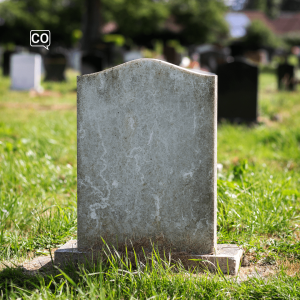
Yo muero de risa cuando descubro un chiste bueno.
(I die of laughter when I find a good joke.)
Morir
(To die)

Ella sale temprano para subir la montaña.
(She leaves early to climb the mountain.)
Salir
(To leave / to go out)
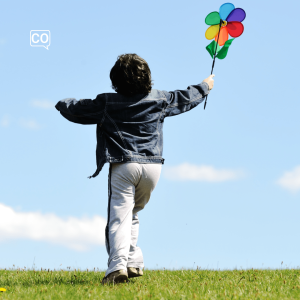
Siempre echo de menos mi infancia porque era muy divertida.
(I always miss my childhood because it was very fun.)
La infancia
(The childhood)
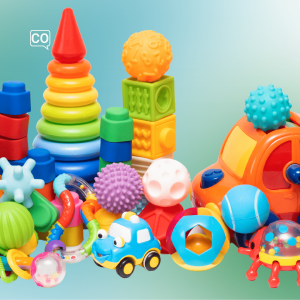
Cuando era niño, mi juguete favorito era un coche de carreras.
(When I was a child, my favourite toy was a racing car.)
El juguete
(The toy)

Cuando era niño, tenía una memoria increíble para los nombres de mis juguetes.
(When I was a child, I had an incredible memory for the names of my toys.)
La memoria
(The memory)

El recuerdo de mi infancia es muy divertido.
(The memory of my childhood is very amusing.)
El recuerdo
(The memory)

El recuerdo del bebé jugando con su primer juguete es inolvidable.
(The memory of the baby playing with their first toy is unforgettable.)
El bebé
(The baby)

El adolescente echaba de menos su infancia cada vez que veía su juguete favorito.
(The teenager missed his childhood every time he saw his favourite toy.)
El adolescente
(The teenager)

Cuando era niño, pensaba que ser adulto era aburrido.
(When I was a child, I thought being an adult was boring.)
El adulto
(The adult)
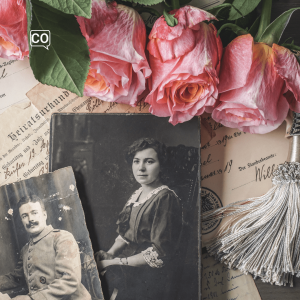
Siento nostalgia cada vez que vuelvo a mi antigua casa.
(I feel nostalgic every time I return to my old house.)
La nostalgia
(The nostalgia)
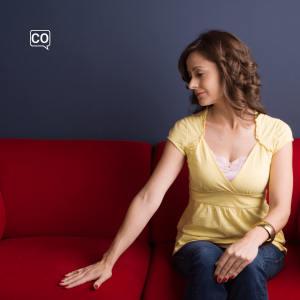
Cuando era niño, siempre echaba de menos a mi abuela cuando se iba de viajes.
(When I was a child, I always missed my grandmother when she went on trips.)
Echar de menos
(To miss)

El recuerdo de aquel día en el parque fue divertidísimo.
(The memory of that day in the park was great fun.)
Divertido
(Fun)
Listening materials
Our listening materials implement the verbs, vocabulary and grammar topics of this lesson. Audio and video available!
A2.18.1 Diálogo: Recuerdos de la infancia
Spanish A2.18.1 Childhood memories
Pedro y Ana recuerdan su infancia y los juguetes de su niñez. Hablan de la nostalgia, la diversión de ser niños, y cómo han cambiado con el tiempo.
(Pedro and Ana remember their childhood and the toys of their youth. They talk about nostalgia, the fun of being children, and how they have changed over time.)
Teaching guidelines +/- 15 minutes
A2.18.2 Gramática: El pretérito imperfecto de verbos regulares
Spanish A2.18.2 The imperfect past tense of regular verbs
(The imperfect past tense is a verbal tense in Spanish that we use to talk about past actions that do not have a defined beginning or end, or that were repeated in the past.)
Teaching guidelines +/- 15 minutes
A2.18.3 Cuento corto: El Tesoro de la Infancia
Spanish A2.18.3 The Treasure of Childhood
Un adulto recuerda con nostalgia su infancia mientras explora una caja de juguetes antiguos.
(An adult remembers his childhood with nostalgia while exploring a box of old toys.)
Teaching guidelines +/- 15 minutes
Spanish A2.18.4 "Kids on the Beach": the Portrait of Youth, Innocence, and the Past
Un vistazo a la juventud en la playa con Sorolla.
(A glimpse of youth at the beach with Sorolla.)
Teaching guidelines +/- 10 minutes
Exercises
These exercises can be done together during conversation lessons or as homework.
Exercise 1: Find the words
Instruction: Find the words, mark them and make sentences with the words.
Show answers Show hintsHints
The baby , The toy , Fun , The memory , To miss , To die
Answers
Score: 0/6
| Divertido | (Fun) |
| Echar de menos | (To miss) |
| Morir | (To die) |
| El bebé | (The baby) |
| La memoria | (The memory) |
| El juguete | (The toy) |
Exercise 2: Reorder sentences
Instruction: The words in these sentences have been shuffled! Sort them so that they make a valid sentence again and translate.
Show answers Show translationExercise 3: Translate and make sentences
Instruction: Translate the words and phrases below and use it in a conversation or text.
Show answersExercise 4: Translate and use in a sentence
Instruction: Translate and say the word out loud. Use the word in a sentence.
Show translation|
1.
La memoria
|
(The memory) |
|
2.
Morir
|
(To die) |
|
3.
Divertido
|
(Fun) |
|
4.
El juguete
|
(The toy) |
|
5.
La nostalgia
|
(The nostalgia) |
Exercise 5: Conjugación verbal
Instruction: Choose the correct word, read the sentence out loud and translate.
Show answers Show translationSer (Pretérito imperfecto, indicativo), Decir (Condicional simple, indicativo), Ir (Pretérito imperfecto, indicativo), Pedir (Condicional simple, indicativo), Comer (Pretérito imperfecto, indicativo), Vivir (Pretérito imperfecto, indicativo), Trabajar (Pretérito imperfecto, indicativo), Ver (Pretérito imperfecto, indicativo)
1. Yo ... a la playa cada verano.
2. Él ... en la montaña y admiraba la naturaleza.
3. Vosotros ... el mar desde la playa.
4. Ellos ... mientras veían el vuelo despegar.
5. Nosotros ... que este camino es más corto.
Exercise 6: The imperfect past tense of regular verbs
Instruction: Choose the correct word, read the sentence out loud and translate.
Show answers Show translationveíais, ibas, escuchábamos, echaba de menos, era, os quedabais, cenábamos, salías
1. Echar de menos (Él): Mi abuelo siempre ... su infancia.
2. Cenar (Nosotros): Mis amigos y yo ... antes de que salíamos de fiesta.
3. Escuchar (Nosotros): Cuando éramos adolescentes ... la música de los años 80.
4. Ver (Vosotros): Siempre os llevabais un susto cuando ... algo sorprendente.
5. Ir (Tú): En nuestra infancia siempre ... a jugar conmigo en el parque.
6. Ser (Ella): Cuando mi madre ... adolescente salía de fiesta con sus amigas.
7. Salir (Tú): Después de que ... siempre corrías al lado del río.
8. Quedarse (Vosotros): Cuando nosotros salíamos a cenar vosotros ... en el hotel para jugar.
Exercise 7: Translate and make sentences
Instruction: Translate the words and phrases below and use it in a conversation or text.
Show answersAppendix 1: Extended vocabulary table
Core vocabulary
(12):
Verbs: 2,
Adjectives: 1,
Interjection: 1,
Nouns: 8,
Context vocabulary:
9
| Spanish | English |
|---|---|
| Brillaba | Was shining |
| Capturaba | He captured |
| Divertida | Fun |
| Divertido | Fun |
| Echar de menos | To miss |
| Echo de menos | I miss |
| El adolescente | The teenager |
| El adulto | The adult |
| El bebé | The baby |
| El juguete | The toy |
| El recuerdo | The memory |
| Escenas | Scenes |
| Juguetes | Toys |
| La infancia | The childhood |
| La memoria | The memory |
| La nostalgia | The nostalgia |
| Morir | To die |
| Muere | Dies |
| Mueren | Die |
| Salgo | I go out |
| Salir | To leave / to go out |
Appendix 2: Verb conjugation tables for this lesson
Ser (to be)
Exercises and examples phrases
- yo era I was
- tú eras you were
- él/ella era he was
- nosotros/nosotras éramos we were
- vosotros/vosotras erais you were
- ellos/ellas eran they were
Vivir (to live)
Exercises and examples phrases
- yo vivía I lived
- tú vivías You lived
- él/ella vivía he lived
- nosotros/nosotras vivíamos We lived
- vosotros/vosotras vivíais You all lived
- ellos/ellas vivían They lived
Trabajar (to work)
Exercises and examples phrases
- yo trabajaba I was working
- tú trabajabas You worked
- él/ella trabajaba He worked
- nosotros/nosotras trabajábamos We worked
- vosotros/vosotras trabajabais You all were working
- ellos/ellas trabajaban They worked
Decir (to say)
Exercises and examples phrases
- yo diría I would say
- tú dirías You would say
- él/ella diría He would say
- nosotros/nosotras diríamos We would say
- vosotros/vosotras diríais you all would say
- ellos/ellas dirían They would say
Pedir (to ask)
Exercises and examples phrases
- yo pediría I would ask
- tú pedirías You would ask
- él/ella pediría he would ask
- nosotros/nosotras pediríamos We would ask
- vosotros/vosotras pediríais you would ask
- ellos/ellas pedirían They would ask
Ver (to see)
Exercises and examples phrases
- yo veía I used to see
- tú veías You saw
- él/ella veía he saw
- nosotros/nosotras veíamos we saw
- vosotros/vosotras veíais you (plural) used to see
- ellos/ellas veían They saw
Ir (to go)
Exercises and examples phrases
- yo iba I was going
- tú ibas You were going
- él/ella iba he was going
- nosotros/nosotras íbamos we were going
- vosotros/vosotras ibais you all were going
- ellos/ellas iban They were going
Comer (to eat)
Exercises and examples phrases
- yo comía I was eating
- tú comías you ate
- él/ella comía he was eating
- nosotros/nosotras comíamos we used to eat
- vosotros/vosotras comíais You ate
- ellos/ellas comían They were eating
Exercise: Verb conjugation
Instruction: Choose the correct word, read the sentence out loud and translate.
Show answers Show translationVer (Pretérito imperfecto, indicativo), Vivir (Pretérito imperfecto, indicativo), Trabajar (Pretérito imperfecto, indicativo), Pedir (Condicional simple, indicativo), Ir (Pretérito imperfecto, indicativo), Comer (Pretérito imperfecto, indicativo), Decir (Condicional simple, indicativo), Ser (Pretérito imperfecto, indicativo)
1. Él ... la cascada mientras respiraba aire fresco.
2. Él ... y ahorraba para viajar el mundo.
3. Yo ... que es mejor hacer una reserva en la agencia de viajes.
4. Él ... que el evento tiene anuncios interesantes.
5. Él ... al bosque a caminar.

